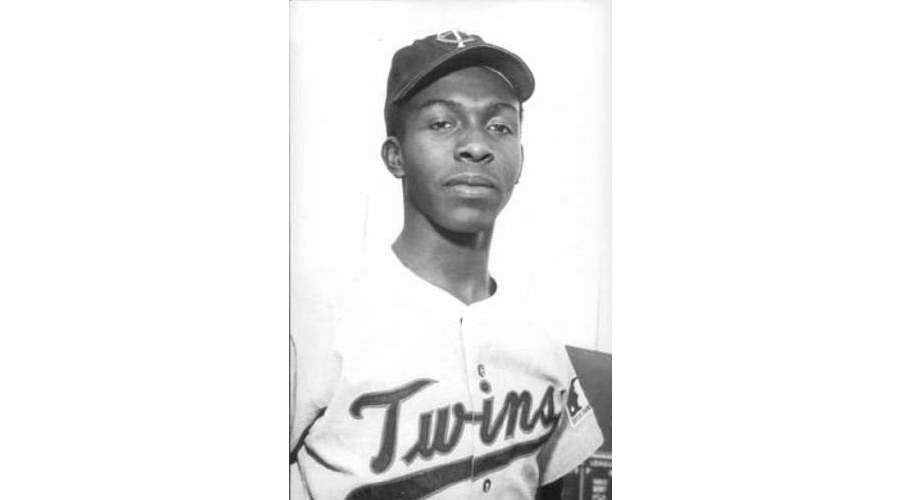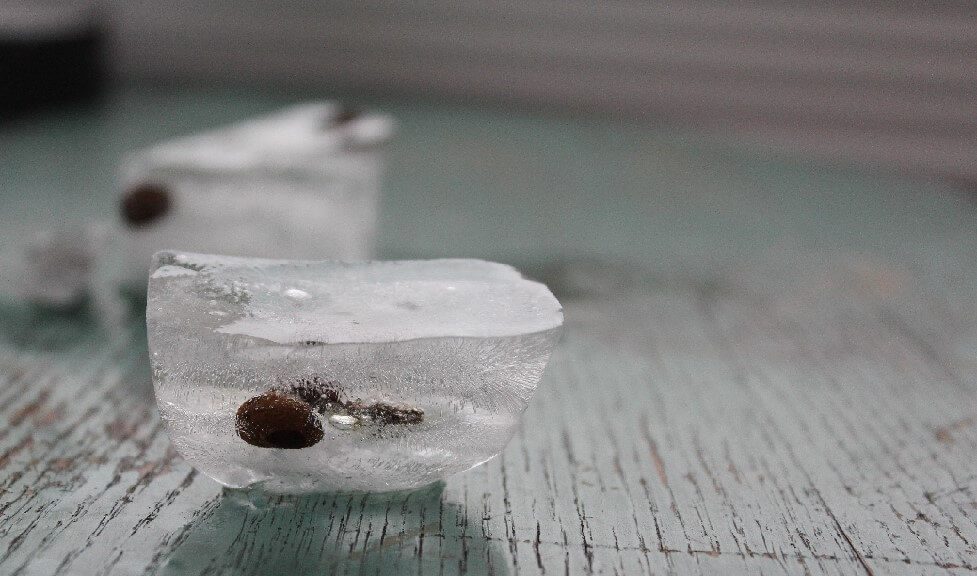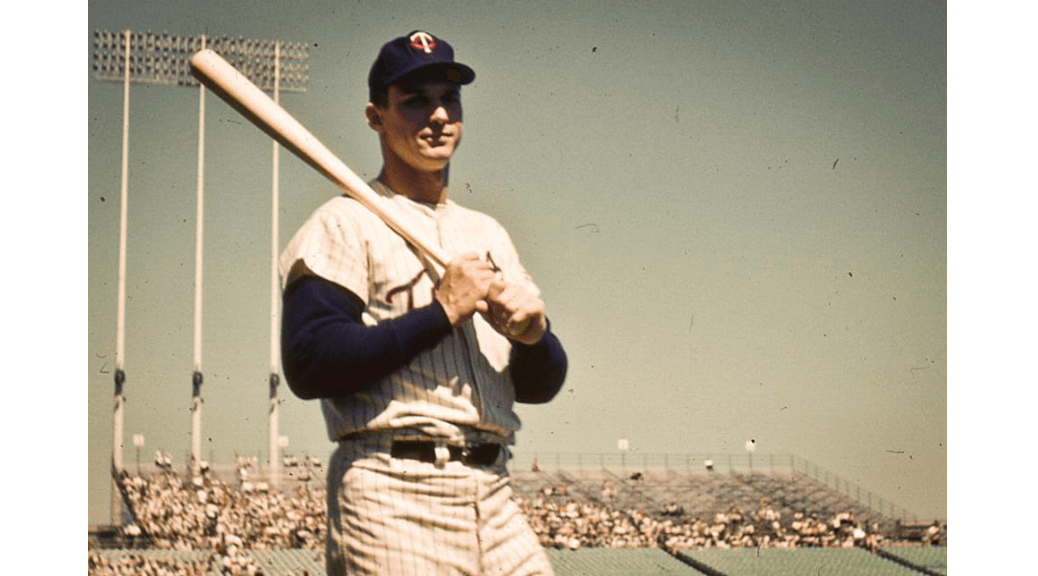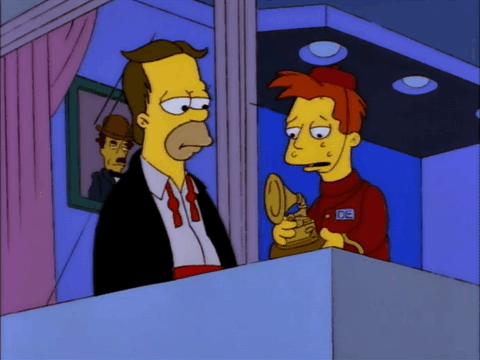https://www.youtube.com/watch?v=Z5CwKWr2Qa4
Monthly Archives: February 2019
Happy Birthday–February 13
This is a reprint from last year which has not been updated.
Chick Fulmer (1851)
Bill Bradley (1878)
Hal Chase (1883)
Eddie Foster (1887)
Sal Bando (1944)
Donnie Moore (1954)
Jerry Browne (1966)
Matt Mieske (1968)
Kevin Stocker (1970)
Howie Clark (1974)
Nathan Eovaldi (1990)
Nathan Eovaldi is the only player in major league history whose last name begins with "Eo".
February 13, 2019: Final Opportunity
Come on, little buddy...
1969 Rewind: Game One Hundred Thirty-three
MINNESOTA 5, CLEVELAND 2 IN MINNESOTA
Date: Tuesday, September 2.
Batting stars: Cesar Tovar was 2-for-4 with a stolen base, his thirty-sixth. Johnny Roseboro was 2-for-4 with two runs. Harmon Killebrew was 1-for-2 with two walks.
Pitching stars: Tom Hall pitched 6.2 innings, giving up two runs on seven hits and three walks and striking out four. Dick Woodson pitched 2.1 scoreless innings, giving up only a walk and striking out two.
Opposition stars: Eddie Leon was 2-for-3 with a double and a walk. Mike Paul struck out two in two shutout innings, giving up a walk.
The game: In the first, Larry Brown hit a one-out single and Ken Harrelson walked, but nothing came of it. The Twins got the scoring started in the fourth when Tony Oliva doubled with one out and scored on a Killebrew single. The Indians came back with a run in the fifth on singles by Ken Suarez and Luis Tiant and a double by Leon, making the score 1-1.
The Twins went ahead to stay in the bottom of the fifth. Roseboro and Leo Cardenas started the inning with singles and Hall walked, loading the bases with none out. Ted Uhlaender hit a sacrifice fly to put the Twins up 2-1 and Rod Carew singled to re-load the bases. Oliva hit into a force out to give Minnesota a 3-1 lead. The Twins scored two more in the sixth when Tovar and Roseboro singled, Cardenas hit a sacrifice fly, and Uhlaender followed Hall's sacrifice bunt with an RBI single.
Cleveland threatened in the seventh. Suarez walked and Leon and Larry Brown delivered two-out singles, cutting the Twins' lead to 5-2. Harrelson walked to load the bases and put the go-ahead run at bat, but Tony Horton hit into a force out to end the inning. The Indians did not get a man on base after that.
WP: Hall (8-4). LP: Tiant (8-18). S: Woodson (1).
Notes: With the return of Carew, Tovar went back to center field and Uhlaender moved to left.
Carew went 1-for-4 and was batting .351. Rich Reese was 0-for-4 and was batting .328. Oliva was 1-for-4 with a double and was batting .314. Uhlaender was 1-for-3, stretching his hitting streak to fifteen games.
This game saw the major league debut of Herman Hill. He was a September call-up after batting .300/.346/.398 at AAA Denver. He pinch-ran for Killebrew in the seventh inning. He then was replaced by Frank Quilici, who took over at third base. Hill appeared in sixteen games in 1969, but was a pinch-runner in thirteen of them, so that he got only two plate apperances. In 1970 he was with the Twins for about three weeks in mid-summer and then again got a September call-up. He appeared in twenty-seven games but started only two of them, again used mostly as a pinch-runner or defensive replacement. He got only twenty-three plate appearances, going 2-for-22 with a sacrifice. And sadly, that's where his career ends. He was playing winter ball in Venezuela after the 1970 season and drowned in a swimming accident. He was only twenty-five.
Hall was on quite a roll. Since July 27 he had pitched 52.2 innings and given up just nine runs, for an ERA of 1,54. He reduced his season ERA from 4.55 to 3.18 over this span. He had three complete games and also made five relief appearances, in one of which he pitched eight innings.
Tiant was having the worst year of his career up to this point. He would end up 9-20, although with an ERA of 3.71. His ERA+ was 101, which obviously isn't terrible, but he led the league in home runs allowed and walks allowed. He still pitched 249.2 innings, leading one to think he must have been keeping his team in the game even if he wasn't winning. He wasn't getting much run support--in nineteen of his twenty losses, the Indians scored three or fewer runs. He would, of course, be traded to Minnesota after the season.
Record: The Twins were 81-52, in first place in the American League West, six games ahead of Oakland.
H.E.R. – Hard Place
I've heard a lot about H.E.R., but this performance from last Sunday's ceremony is the first I've seen (she was nominated for five (including AotY) and took home two). It won't be the last.
https://www.youtube.com/watch?v=xIQuwD2umzQ
Happy Birthday–February 12
This is a reprint from last year which has not been updated.
Pants Rowland (1879)
Chick Hafey (1903)
Dom DiMaggio (1917)
Joe Garagiola (1926)
Pat Dobson (1942)
Mike Martin (1944)
Ray Corbin (1949)
Lenny Randle (1949)
Don "Full Pack" Stanhouse (1951)
Cam Bonifay (1952)
Chet Lemon (1955)
Greg Johnston (1955)
Joe Bitker (1964)
Ryan Lefebvre (1971)
Chris Snyder (1981)
Cole De Vries (1985)
Clarence "Pants' Rowland spent his life in baseball. A catcher, he went on to manage the Chicago White Sox to the World Championship in 1917. He was an American League umpire from 1923-1927. He was also a minor league manager and executive, and was president of the Pacific Coast League from 1944-1954. He is a member of the Pacific Coast League Hall of Fame.
Mike Martin has won almost 1,900 games as the head coach of Florida State.
Cam Bonifay was the general manager of the Pittsburgh Pirates from 1993-2001 and is currently working in the Cincinnati organization.
Ryan Lefebvre appeared in six minor league games for the Watertown Indians in 1993. He was a Twins broadcaster in the 1997 and 1998 before moving to Kansas City in 1999, where he has been a broadcaster for the Royals ever since.
Joe Bitker was drafted by Minnesota in the sixth round in the 1984 January draft, but he did not sign.
This is a great day for players with colorful nicknames. In addition to those listed above, we have Sweetbread Bailey (1895), Kiddo Davis (1902), Dutch Dietz (1912), Monk Dubiel (1918), and Woody Main (1922).
February 12, 2019: Aural Oddities
We've been having a good bout of freezing rain. I've got a number of high reaching trees in the backyard, and when I was walking through there last night I noticed a weird sound. As the wind blew, the trees kind of groaned and shrugged off the accumulating ice that then fell and shimmied across the frozen layer of snow below. You could hear it exactly in time as you watched them sway. It was one of the closest sensory experiences I had to the full movement of a tree.
Oh, also, baseball is about to start.
1969 Rewind: Game One Hundred Thirty-two
MINNESOTA 7, CLEVELAND 5 IN MINNESOTA
Date: Monday, September 1.
Batting stars: Bob Allison was 2-for-4 with a triple and four RBIs. Tony Oliva was 2-for-4 with a triple and two runs. Leo Cardenas was 2-for-4. Rick Renick was 1-for-4 with a two-run homer, his third.
Pitching star: Ron Perranoski pitched 2.1 scoreless innings, giving up a hit and a walk.
Opposition stars: Stan Williams struck out six in five shutout innings of relief, giving up three hits and a walk. Tony Horton was 3-for-5. Lou Klimchock was 2-for-3 with a double and two runs. Vern Fuller was 2-for-4.
The game: Singles by Klimchock and Frank Baker were followed by an error, giving the Indians a 1-0 lead. The Twins responded in a big way, scoring six runs off Cleveland starter Sam McDowell before anyone was retired. Cesar Tovar led off with a double and Oliva singled him to third. Harmon Killebrew walked to load the bases and Allison responded with a bases-clearing triple. Cardenas singled him home and Renick followed with a two-run homer, putting the Twins up 6-1. The Twins got one more in the second when Oliva tripled and Allison singled, making the score 7-1.
McDowell came out after two innings and the Twins did not score again. Meanwhile, the Indians tried to chip away at the Twins' lead. In the third, Klimchock doubled, went to third on Horton's infield single, and scored on an error to make it 7-2. In the fourth, singles by Eddie Leon and Fuller, a bunt, and a Russ Snyder two-run single cut the margin to 7-4.
Twins starter Dean Chance then settled down and retired the next eight batters before being pulled for a pinch-hitter in the bottom of the sixth. Jim Kaat came on to pitch the seventh and gave up consecutive one-out singles to Larry Brown and Chuck Hinton. Al Worthington gave up an RBI single to Horton to make the lead 7-5 before recording the second out of the inning. Perranoski came in to nail down the victory. It was not without a little drama, though--with two out in the bottom of the ninth, Hinton walked and Horton singled, bringing the go-ahead run up to bat. Ken Harrelson flied to center to end the game.
WP: Chance (5-2). LP: McDowell (15-12). S: Perranoski (26).
Notes: Rod Carew returned, but was not in the starting lineup. Tovar remained at second at Ted Uhlaender remained in center, with Allison in left and George Mitterwald behind the plate. Carew pinch-ran for Mitterwald in the eighth and went to second base, with Tovar moving to center and Uhlaender to left. Johnny Roseboro entered the game at catcher. Renick was at third base in this game, with Killebrew at first. Frank Quilici came in to play third in the ninth.
Oliva raised his average to .315. Chance's ERA was 2.66. Perranoski's ERA dropped to 2.08.
Chance pitched six innings, giving up four runs (two earned) on nine hits and no walks and striking out four. McDowell pitched two innings, allowing seven runs on seven hits and a walk and striking out two. By game scores it was easily McDowell's worst game of the season, and raised his ERA from 2.75 to 2.99.
The bases-loaded triple was the last triple of Allison's career. He had a total of fifty-three of them.
I was vaguely aware that there had been a big-league ballplayer called "Lou Klimchock", but I could've told you nothing about him. Looking at his career, I can see why. It was a fairly long career, covering twelve seasons, but 1969 was the only season in which he got a decent amount of playing time. His 279 plate appearances are more than double what he got in any other season. In his twelve seasons, he never did get a full year in the majors. He made his major league debut as a September call-up with Kansas City in 1958 at age eighteen after batting .389 in Class C Pocatello. He also hit twenty-five home runs that year, and followed it up with nineteen in AA Shreveport in 1959, so one assumes that Athletics thought they had a power-hitting infielder. It didn't work out that way--he never hit more than nineteen again, and the only two times he reached that number were when he was playing in Denver. He went back-and-forth between AAA and the majors for the rest of his career. He was in the Kansas City organization through 1961, went to the Milwaukee Braves in 1962, went to Washington briefly in 1963 before being returned to Milwaukee. and going to Cleveland in 1966, where he would be the rest of his career. In all the ups and downs he got 711 major league plate appearances and batted .232/.264/.330. To be fair, he played most of his career in the 1960s, and it's hard to establish yourself when you don't get consistent playing time. In AAA, he batted .277/.331/.443. On the other hand, most of that AAA career was in the Pacific Coast League, which was well-known as a hitters' league, so it's hard to say that baseball was unfair to him. He is active in the Major League Players Alumni Association, and also is a frequent guest at SABR events. At last report, he was living in the Phoenix area.
Record: The Twins were 80-52, in first place in the American League West, 5.5 games ahead of Oakland.
Happy Birthday–February 11
This is a reprint from last year which has not been updated.
Jimmy Ryan (1863)
Kenjiro Tamiya (1928)
George Alusik (1935)
Downtown Ollie Brown (1944)
Ben Oglivie (1949)
Tom Veryzer (1953)
Todd Benzinger (1963)
Scott Pose (1967)
J. R. Towles (1984)
Kenjiro Tamiya is a member of the Japanese Baseball Hall of Fame, playing from 1949-1963. He began as a pitcher, and came within one out of pitching the first perfect game in Nippon Pro Baseball history. A shoulder injury required him to switch to the outfield in 1952. He was a seven-time all-star.
We would also like to wish a very happy birthday to Moss. Live Moss.
Outfielder Scott Vernon Pose did not play for the Twins, but was in their minor league system in 1995. He was born in Davenport, Iowa, went to the University of Arkansas, and was drafted by Cincinnati in the thirty-fourth round in 1989. He hit for high averages with quite a few walks in the minors, reaching AA in 1991. He hit .342 in AA Chattanooga in 1992, but was left unprotected after the season and was chosen by Florida in the Rule 5 draft. He was the starting center fielder in the first game the Marlins ever played, but quickly lost the job and was back in the minors by late April. He stayed in AAA for several years. He was released by the Marlins in March of 1994 and signed with Milwaukee. A free agent after the season, he signed with the Dodgers for 1995 but was released in mid-April. The Twins signed him on June 1 and sent him to Salt Lake, where he hit .310/.395/.364 in 203 at-bats. He was a free agent again after the season, signed with Cleveland for 1996, but was traded to Toronto during spring training. He was once again a free agent after the season and signed with the Yankees for 1997. He actually spent most of that season in the big leagues as a reserve outfielder, hitting .218 in 87 at-bats. He stayed in the Yankees’ organization in 1998, then moved on again, this time to Kansas City. He spent two full seasons in the majors with the Royals, his only two full seasons in the majors, but was basically a defensive replacement, appearing in 133 games but getting only 185 at-bats. He was in AAA for Houston in 2001 and for Texas and the Dodgers in 2002, after which his playing career ended. At last report, Scott Pose was a baseball analyst for the Big Ten Network and for the Durham Bulls. He was also a regional sales manager for Coloplast, which develops products and services that make life easier for people with very personal and private medical conditions.
Catcher Justin Richard (J. R.) Towles did not play for the Twins, but was in their minor league system in 2012. Born and raised in Crosby, Texas, he attended Collin College in Dallas and North Central Community College in Gainesville, Texas before being drafted by Colorado in the twentieth round in 2004. He hit very well in Class A in 2005 but for some reason, possibly having to do with defense, he was made to repeat Class A in 2006. He had another fine year and continued to hit well when promoted to AA in 2007 and made his major league debut that year as a September call-up. He began 2008 as the Astros starting catcher but did not hit, getting sent back to AAA in early June. That was the pattern for the rest of his time with the Astros: he would hit well in the minors, but do nothing in the majors. He became a free agent after the 2011 season, signed with Minnesota, and was sent to Rochester. The Red Wings had quite the catching crew that year: Towles, Drew Butera, and Rene Rivera, with a few games by Danny Lehmann thrown in. If you can't rise to the top among that crew, it's not a good sign for your career, and Towles couldn't: he hit .214/.280/.315 in 168 at-bats. He bounced around after that, playing in AAA for St. Louis and Los Angeles in 2013, starting 2014 with Bridgeport, signing with Texas in late August, and becoming a free agent after the season. He did not sign with anyone, bringing his playing career to an end. His major league stats all came in his five partial seasons with Houston, ending in 2011: he hit .187/.267/.315 in 428 at-bats. At last report, J. R. Towles was a catching and batting instructor for Premier Baseball in Tomball, Texas, which is near Houston.
February 11, 2019: Just The Worst
GVF? GVF'nF!?
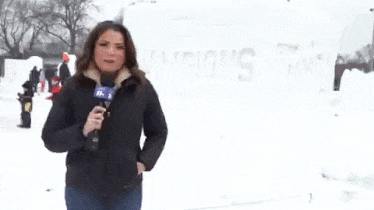


 (3 votes, average: 8.33 out of 10)
(3 votes, average: 8.33 out of 10)

